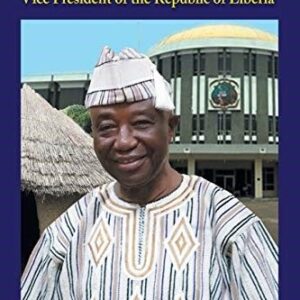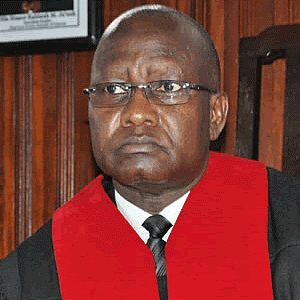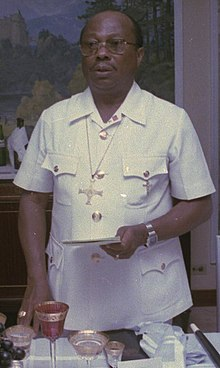By Hun-Bu Tulay
“Knowledge (education) makes a man unfit to be a slave” – Frederick Douglass
Liberia’s underdevelopment can be attributed to many different causes or reasons. Some believe the country’s underdevelopment is because of corruption. Others believe it is not corruption. What do you think is/are the reason(s) why the country is underdeveloped?
The late President William R. Tolbert has been referred to by the very progressive that helped to
overthrow his government as the most progressive leader of the country. We refer you to Dr. Amos C. Sawyer’s statement at the Truth and Reconciliation Commission (TRC) hearing. President Tolbert once identified the enemies of the country as Ignorance, Disease, and Poverty. He declared war on these enemies in 1976. It is now 44 years, and these enemies appear to still be with us and getting stronger. Let us not forget that President Tolbert also identified corruption as a menace that needed to be swept out of the country in 1971, if this country must develop. That was 53 years ago. Unfortunately, the enemies and the menace are still with Liberians and they are just getting more and more damagingly impactful by the year. Are these the problems for the underdevelopment of the country? This is the sixty-four dollar question for you. In this feature, we will try to help you understand the cause of the country’s underdevelopment.
Ignorance: Ignorance is simply defined as the lack of knowledge, information, understanding, or education. We will focus on the lack of education in this feature. We must first understand that the human capital of any nation is the most precious resource of that country. If the people of a country are ignorant, the country will perish. This we saw during the civil crisis. Effective and functioning democracy depends on the level of education the population acquires. We are where we are today because the government did not do much in the education of the masses. If the human capital of a country is nurtured well, the country becomes a great nation and a country of peace, reconciliation, the rule of law, respect for human rights, transparent justice and a beacon of hope for all residing in said country.
However, if the country’s human capital is neglected, meaning ‘not nurtured properly’, the nation becomes infested with enemies and menace as was described by President Tolbert. The country becomes one where every democratic principle is thrown under the BUS.
The country becomes one of idiots, and a country where IDIOTS ELECT HALF-WITTED PEOPLE to govern them. It becomes a country infested by greedy and envious people. A nation that is governed by people infested by two human vices (greed and envy) such a country is headed for destruction because these two human vices, if systematically cultivated, will inevitably result in nothing less than the collapse of human intelligence.
Also, a society driven by these vices loses the ability to see things as they are. In such a society the people become incapable of solving the most elementary problems. These human vices drive a society to conflicts of all sorts. They make a society live on ideas that conflict with the laws and constitution governing the society and the universe. Our officials of government are infested by these human vices. You will agree with us if we say that these vices were responsible for all conflicts in the country and of course the underdevelopment of this rich and naturally endowed country of ours.
Unfortunately, many of the men and women who have governed this country for most of the 201 years of its existence succumbed to these two human vices. During most of these years, these men and women neglected the nurturing of the human capital, meaning since the arrival of the founding fathers in 1822.
Even after the Greenleaf constitution was adopted on July 26, 1847, making all people residing in the territorial boundaries of the country citizens, this neglect did not stop the founding fathers from recognizing certain element citizens until 1907. The government failed to provide the proper education for the masses of the country. Article 6 of the Liberian Constitution of 1986 reads: “The Republic shall, because of the vital role assigned to the individual citizen under this constitution for the social, economic and political well-being of Liberia, provide equal access to educational opportunities and facilities for all citizens to the extent of available resources. Emphasis shall be placed on mass education of the Liberian people and the elimination of illiteracy.” This article of the Liberian Constitution has been ignored and continues to be ignored by political leaders, particularly those charged with the responsibility to distribute and allocate the needed resources.
Examples
- In the 1850s, an American (Judge Steward) visited Liberia and wrote the following in his diary: “These American Ex-slaves treat the African freedmen as if they have NO RIGHTS, which is worthy of RESPECT. They are defrauded, beaten with stripes, made to feel like inferior beings, and excluded from churches and schools. Doing such things was to deprive the masses from understanding their fundamental rights as provided by the Constitution and universal laws. They kept the people in the dark and continued to do so even after 202 years as a means to rule them perpetually.
- In a book written by Cletus Segbe Wotorson titled “Acceptance”, Mr. Wotorson described what happened in his village, when he was a young boy. He wrote, “A captain of the then Armed Forces of Liberia paid a courtesy call to my home, GrandCess. There were no motor roads then, so the people had to transport him in a hammock on top of their heads. When the good captain arrived, he refused to get down from the hammock. He then asked for the town folks to prepare food for him and his entourage. And he stayed in the hammock until the food was prepared.” If these people were provided education and knew their rights, such incidents would not have taken place.
This act of the captain motivated Wortoson to go to school. He became the first Geophysicist in the country. He later became Minister of Lands, Mines, and Energy, Senator of his county, and later President Pro-Tempore of the Liberian Senate (fourth in line to the presidency).
The act of the captain was common in all parts of the country. It was a similar act that made our grandmother send our father to school because she did not want her son to carry government officials in a hammock. With the education our father acquired, he became a Circuit Judge and later Associate Justice of the Supreme Court twice (1977 and 1986).
- Mr. J. Burleigh Holder also wrote a book titled: “The Hand of God”. In his book, he said that during the 1920s, there was no junior high school in White Plains, a settlement just a stone’s throw from Monrovia. The highest level of education was grade six. If you were lucky to complete the sixth grade and had no relatives in Monrovia, you became a farmer. With the education Holder acquired he became Deputy Minister of State, Minister of Defense, and Minister of National Security.
- In the Biography of the current President (From Foya to the Capitol), Professor Sakui Malakpai wrote the following: “The once penniless lad has demonstrated successfully that one does not have greatness thrust upon you; that greatness can be achieved through education, hard work, honesty, devotion, and uncompromising integrity.”
The four examples above indicate that with education, one can lift himself or herself from ignorance, disease, and poverty. We all know or have read what the above four individuals achieved in our society. With education, you defeat poverty, ignorance, and disease.

We experienced this when we encountered a lady in the 1980s. A workmate of ours was offered a scholarship and had to travel abroad to study. This workmate gave us a Power of Attorney to collect his salary monthly and distribute it as instructed. He had a daughter whose mother was from White Plains but was living with the grandmother. The first time the grandmother came to our office to receive the monthly allowance, we asked her to prepare a receipt. This lady who was elegantly dressed informed us that she did not know how to write. We were shocked because for someone from White Plains just ten kilometers from Monrovia to lack basic elementary education was disconcerting to us. Just imagine if this was happening ten kilometers from Monrovia, what do you think was the situation 50 kilometers and beyond from Monrovia?
Corruption: The definition of corruption, as articulated by the United Nations in July 1998, refers to “The misuse of public power, office, or authority for private benefits through bribery, extortion, influence peddling, nepotism, fraud, speed money, or embezzlement.” This all-encompassing definition underscores the pervasive nature of corruption within our government system since gaining independence. Over the past 53 years, administrations have grappled with this issue, commencing with President Tolbert’s unsuccessful endeavors to combat it. Notably, former Interim President Dr. Amos Sawyer’s prioritization of peace over addressing corruption is evident in his statement, “That is what you pay for PEACE,” when confronted about ministerial misconduct. Former President Sirleaf described corruption as a “VAMPIRE” and later acknowledged her inadequacy in combating it. Allegations of the current administration, under President Weah, fostering corruption across all three branches are substantiated by emerging audit reports.
High court justices had argued that corruption has tiptoed in the Judiciary. Chief Justice Johnson Morris, Chief Justice Korkpor, Justice Wolokollie, and Justice Kaba. Justice Kaba argued that corruption in the Judiciary has taken various forms (bribery, extortion, influence, cronyism, and nepotism.

The Justice statement can be found in the New Draw Newspaper published May 8, 2024. It is not only these Justices that expressed these views, but our development partners have also echoed similar views. Over the past eighteen years, corruption has been rampant in all three branches of the government but more opened in the Legislative Branch. If the branch that is responsible for oversight is corrupted, is there any hope of swamping corruption from the other two branches? Of course, the answer is a BIG NO. This branch has failed to investigate one of its own for waiving US$14 million of the money owed as per the Mineral Development Agreement ratified by the very legislature. We are referring to the case of the Western Cluster.
Form of Government: This nation operates under a unitary form of governance, consisting of three branches – Legislative, Executive, and Judiciary. The Legislative branch, positioned as the most influential, is entrusted with the pivotal functions of Representation, Law Making, and Oversight. Despite this, shortcomings have been observed within this branch, exemplified by the passage of a contentious Pension Law by the 54th Legislature, which was subsequently withheld from enactment by President Weah, thereby preventing the allocation of a substantial budget portion to defeated Legislators, the President, and the Vice President.
Over the past eighteen years, and presently, members of the Legislature have purportedly held the highest-paid legislator positions in West Africa, allegedly surpassing their American counterparts in remuneration. Additionally, these legislators receive budgetary allocations for Legislative Projects and Legislative Engagement, which, according to the New Dawn newspaper, are not audited by the General Auditing Commission. Furthermore, they benefit from additional funds every three years to purchase vehicles and a monthly gasoline allotment of US$2,000.00. Former President Sirleaf once remarked that she did not willingly provide these privileges; rather, they were appropriated by the legislators.
The allocation of significant resources to their interests while making minimal provisions for crucial sectors such as education, healthcare, infrastructure, and agriculture has sparked concerns regarding the Legislative branch’s prioritization. Scholars call this act of the Legislature as acting against the GENERAL INTEREST. And such is CORRUPTION.
The Legislative Branch of the Liberian government has now been identified even by some of its members as the country’s primary obstruction to progress and development. It is believed that the Legislature holds the power to eradicate illicit drugs, corruption, poverty, and disease, as well as to enhance agricultural self-sufficiency and ensure quality education. However, the 52nd, 53rd, and 54th legislatures failed to fulfill these responsibilities. The call is now made for the 55th legislature to reconsider resource allocation. Although President Boakai and Speaker Koffa reduced their salaries, it is deemed insufficient. We believe that the Legislature has the authority to remove corrupt officials and non-performing ministers and heads of agencies, as well as impeach corrupt judicial officers. The Constitution provides guidelines for the expulsion of members for cause, and it is suggested that actions such as the improper waiver of funds warrant expulsion. Additionally, it should be highlighted that the Legislature’s failure to investigate a member who waived $14 million of the Social Development Fund that should benefited citizens in three counties (Grand Cape Mount, Bomi, and Gbarpolu would be a great disservice to these over 150,000 inhabitants in these counties. If such actions of the Legislature continue, we will call for action against her as is emphasized, citing the Constitution’s provisions that grant the people the right to recall elected leaders. We will call on the people to exercise this right to address the current state of affairs and strive for a better future. Furthermore, we are proposing that the President and Legislature declare the development of Liberia as a NATIONAL EMERGENCY, calling for an annual allocation of $150 million for national development. The need to adhere to best practices in budgeting and reduce recurrent costs is stressed to effectively utilize existing resources for NATIONAL DEVELOPMENT.
To raise the money for national development, the legislature from now starting with recasting the budget currently before her by adhering to the budget best practice (30%) allocation to recurrent cost. All budgets since 2006 and now allocate 45% or more to recurrent costs.
We also recommend the creation of a special court for drug offenders and corrupt officials. Also enacting a law, making corruption an unbillable offense. The Legislators’ failure to do the above will brand her as the ENEMY OF THE COUNTRY.
We know that many of you legislators have read history but we need to reflect your memories. We believe you are familiar with the TENNIS COURT OATH. In case you have faded memories, we like to reflect on your memories. On the 20th of June, 1789, the National Assembly swore an oath never to stop meeting until a constitution was written and approved. This was a turning point in French history.
Liberians are gearing up to take similar action against all three branches of government because of rampant corruption in all three branches of the government if government officials do not change in the next few months. This is a clear message to those in charge particularly the legislators. Liberian People are saying that they have had enough of rampant corruption, illicit drugs, the culture of impunity, and huge salaries and benefits. They are tired of seeing few people enjoying the resources perpetually at the disadvantage of the masses. Such action violates Chapter 2, Article 6 of the Constitution. They cannot take it anymore. You either shape up or ship out if you care about the future of the country. They demand the following:
- They are asking that the legislature/executive revert to the Late President Tolbert’s Vehicle Policy. In that policy, the government only purchased vehicles for five government officials (President, Vice President, Speaker, President Pro-Temp, and Chief Justice). All other officials purchased their vehicles and fueled the same.
- Amend the anti-corruption act. The amendment should make corruption an unbillable offense
- Adhere to the best budget practice (30%) for recurrent costs. Currently it is above 45%.
- Declare the development of the country as a National Emergency and allocate US$150 million annually from the National Budget for the development of the country.
- Investigate the US$14 million that was waived. And all those culpable be prosecuted.
- An independent body be pointed to investigate the budget alteration and those culpable prosecuted.
Failure to do the above, be ready for a long sit-in after December 2024.

